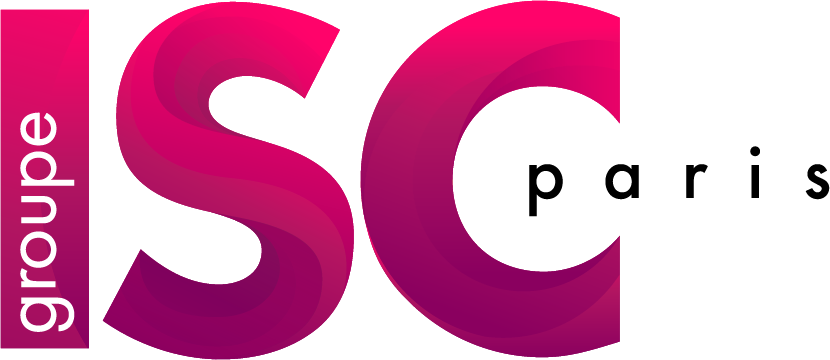FRANCE
FRANCE
Higher education in France offers international students a unique and transformative opportunity. Known for its world-class institutions, diverse academic programs, and strong emphasis on research and innovation, France has become a top destination for global learners. Public universities in France are heavily subsidized, making tuition fees significantly lower compared to many other countries. This affordability, combined with high academic standards, provides excellent value for international students.
Studying in France also means exposure to a rich cultural heritage and a vibrant international environment. Students gain access to renowned institutions such as Sorbonne University, Sciences Po, and École Polytechnique, and can study in either French or English, depending on the program. Furthermore, France's central location in Europe offers easy travel opportunities and networking with peers from across the continent.
For international students, studying in France can be a game changer. It not only enhances academic credentials but also broadens cultural understanding and global perspectives. French degrees are globally recognized and can open doors to international careers, especially within the European Union. With its blend of academic excellence, cultural depth, and affordability, higher education in France is a strategic step toward a brighter future.
-
Quality of HE Education
International students favor it for quality education, top institutions, and affordable tuition. -
Research Opportunities
France leads in research; students join top researchers in innovative, groundbreaking projects. -
Scholarships Available
French universities offer fully and partially funded scholarships for international students. -
English-taught Courses
Over 1,650 English-taught study programs exist at French universities.
reasons
Dedicated to simplifying the study abroad journey with clear guidance and support, we empower you to make
informed decisions and take confident steps toward achieving your educational goals abroad.
Academic Excellence
Renowned universities and research institutes offer excellent education and internationally respected degrees, creating a strong base for academic growth and successful global career opportunities.
part-time work
International students who have a valid student visa can work while studying, no matter their degree level, for a maximum of 964 hours each year throughout the duration of their academic program.
STUDENT SUPPORT
Benefit from extensive support services like scholarships, low tuition fees, student discounts, and healthcare access, all designed to improve your lifestyle and overall student experience.
Stay Back
International students who finish their master’s in France at a recognized institution may extend their stay for up to two years to find employment and gain work experience after graduation.
scholarships & grants
France provides scholarships and grants for international students through government programs, university awards, and external funding, helping lower tuition fees and cover living expenses.
Cultural Richness
Discover France’s vibrant culture, famous art, rich literature, exquisite cuisine, and immersive lifestyle, providing a uniquely enriching and memorable educational experience for every student.

Interested in meeting university delegates from the France?
Please register your interest in attending exclusive one-on-one meetings with the French university delegates visiting your country, or join us at one of our international education fairs.
Institution Partners
We are proud to collaborate with world-class universities offering diverse courses that empower students to nurture
their potential, pursue academic excellence, and shape a successful future with confidence.



-
Computer Science and
Software Engineering -
Renewable Energy and
Environmental Studies - Engineering (Mechanical, Electrical, Civil, etc.)
-
Medicine and Healthcare
(Nursing and Pharmacy) - Design Technology and Architecture
Unleash your potential — join the journey toward a brighter future.
- Explore. Plan. Find Your Fit
- Your Application Journey, Made Simple
- Keep Going — You’re Nearly There
- Your Success, Our Commitment Always
There are many compelling reasons why international students should consider studying in France. To begin with, the country boasts renowned universities and institutions recognized for their academic excellence and top-tier education. Students benefit from access to expert faculty, advanced research facilities, and a broad selection of programs across multiple fields of study.
Additionally, France offers a rich cultural experience and dynamic lifestyle. Students can engage deeply with the country’s renowned art, literature, cuisine, and historical landmarks, expanding their cultural understanding and global outlook.
France also serves as a global leader in research and innovation, providing students with valuable opportunities to participate in cutting-edge research and collaborate with experts across various disciplines.
Its strategic location in the heart of Europe allows students to conveniently travel and discover other European nations, adding to the overall international experience.
Moreover, international students enjoy relatively low tuition fees, generous scholarships and financial aid, and a high quality of life. Graduates are also eligible for post-study work opportunities in a strong job market.
In summary, France offers a distinctive and enriching academic journey, blending educational excellence, cultural engagement, and opportunities for both personal and professional advancement.
France has a growing demand for skilled professionals across a variety of sectors. Some of the most in-demand professions include:
Information Technology (IT): As technology continues to evolve, there is a strong need for IT experts, particularly in software development, cybersecurity, artificial intelligence, and data science.
Engineering: France’s robust engineering sector seeks qualified professionals in civil, mechanical, electrical, and aerospace engineering.
Healthcare: The healthcare industry consistently requires medical professionals such as doctors, nurses, pharmacists, and medical researchers to support its public health infrastructure.
Renewable Energy: In line with its sustainability goals, France is prioritizing green energy. This creates opportunities for experts in solar and wind energy, as well as sustainable engineering.
Digital Marketing & E-commerce: With the digital economy on the rise, professionals in online marketing, social media, e-commerce, and digital advertising are in high demand.
Business and Finance: Skills in finance, accounting, business administration, and entrepreneurship are essential for France’s corporate and economic sectors.
Tourism and Hospitality: Given France’s status as a leading tourist destination, there is ongoing demand for workers in hospitality, hotel management, event coordination, and tourism marketing.
Demand may shift over time based on economic conditions, technological advancements, and policy changes, but these fields currently offer strong employment prospects.
Yes, France provides stay-back options for international graduates after their studies. Students can apply for a temporary residence permit called the “Autorisation Provisoire de Séjour” (APS), which allows them to remain in the country for up to 12 months to search for employment and gain work experience. Additionally, those who complete a master’s degree are eligible to apply for a two-year temporary residence permit, offering extended time to find a job or continue academic activities in France.
Admission requirements for undergraduate and master’s programs at French universities or institutions can differ based on the course and school. Generally, the key criteria include:
Academic Qualifications: For undergraduate studies, completion of secondary education or an equivalent diploma is required. For master’s programs, a recognized bachelor’s degree or its equivalent is typically necessary.
Language Proficiency: International students must often prove proficiency in the language of instruction, which may be English or French. Accepted tests include IELTS, TOEFL, or other recognized exams.
Application Materials: Students usually need to provide a completed application form, academic transcripts, recommendation letters, a statement of purpose or motivation letter, and a resume or CV.
Additional Criteria: Some programs might require extra steps like entrance exams, portfolios (especially for arts-related courses), or interviews.
Since requirements vary by institution and program, it’s advisable to review the specific admission criteria of the chosen university and course for accurate details.
France is becoming an attractive destination for job opportunities. Universities and business schools not only prioritize students’ health and safety but also actively support them in securing paid or unpaid internships, promoting overall development. Many institutions have dedicated career centers that help international students find internships and jobs. While studying, international students can work part-time up to 20 hours per week, allowing them to gain valuable experience with French work culture.
Key sectors driving France’s economy include energy, manufacturing, tourism, agriculture, technology, and transportation. Notable companies like Electricité de France (EDF), Airbus, Total, Orange, Sanofi, LVMH, L’Oréal, Danone, and Renault are headquartered in France. The country is also expanding in renewable energy and is recognized globally for its technological innovation, supporting some of the world’s largest tech companies. Additionally, French firms like Publicis are renowned in advertising.
Learning French is beneficial, as it’s the official language and widely spoken worldwide, helping students integrate better culturally and professionally. France encourages young talent, especially in entrepreneurship and innovation. To improve job prospects, students should tailor their resumes to French standards.
There is a shortage of skilled workers in fields like engineering, IT, healthcare, and education. EU international students can stay indefinitely after graduation to seek employment. Non-EU students, however, must secure a job offering at least 1.5 times the minimum wage to remain and apply for a work visa, converting their student visa.
Beyond work, students in France can enjoy its rich cultural heritage, from philosophy and art to cuisine, music, fashion, literature, and sports.

FRANCE FAQ
We love supporting students, answering questions, and providing accurate, up-to-date information to help them make informed, confident education decisions.

